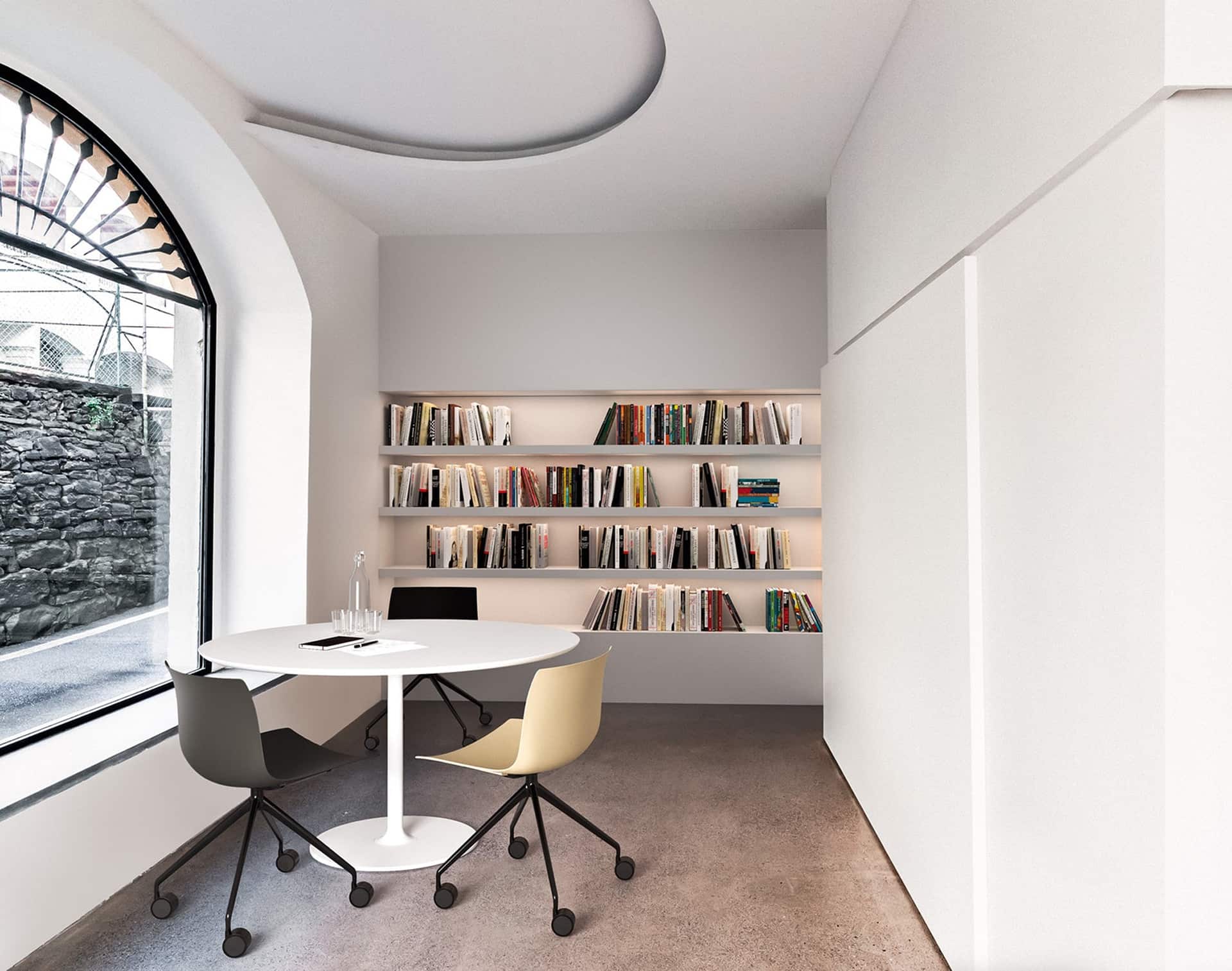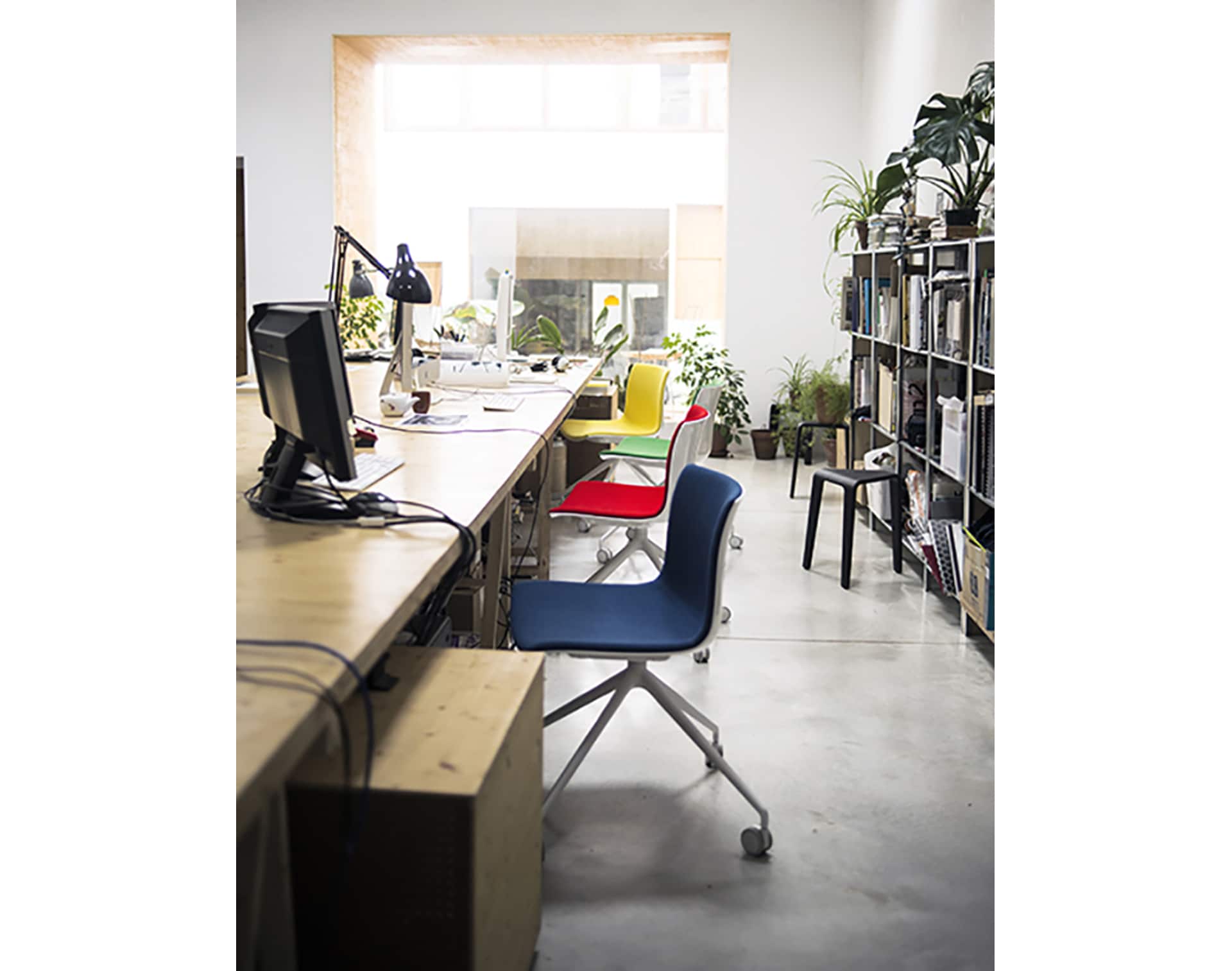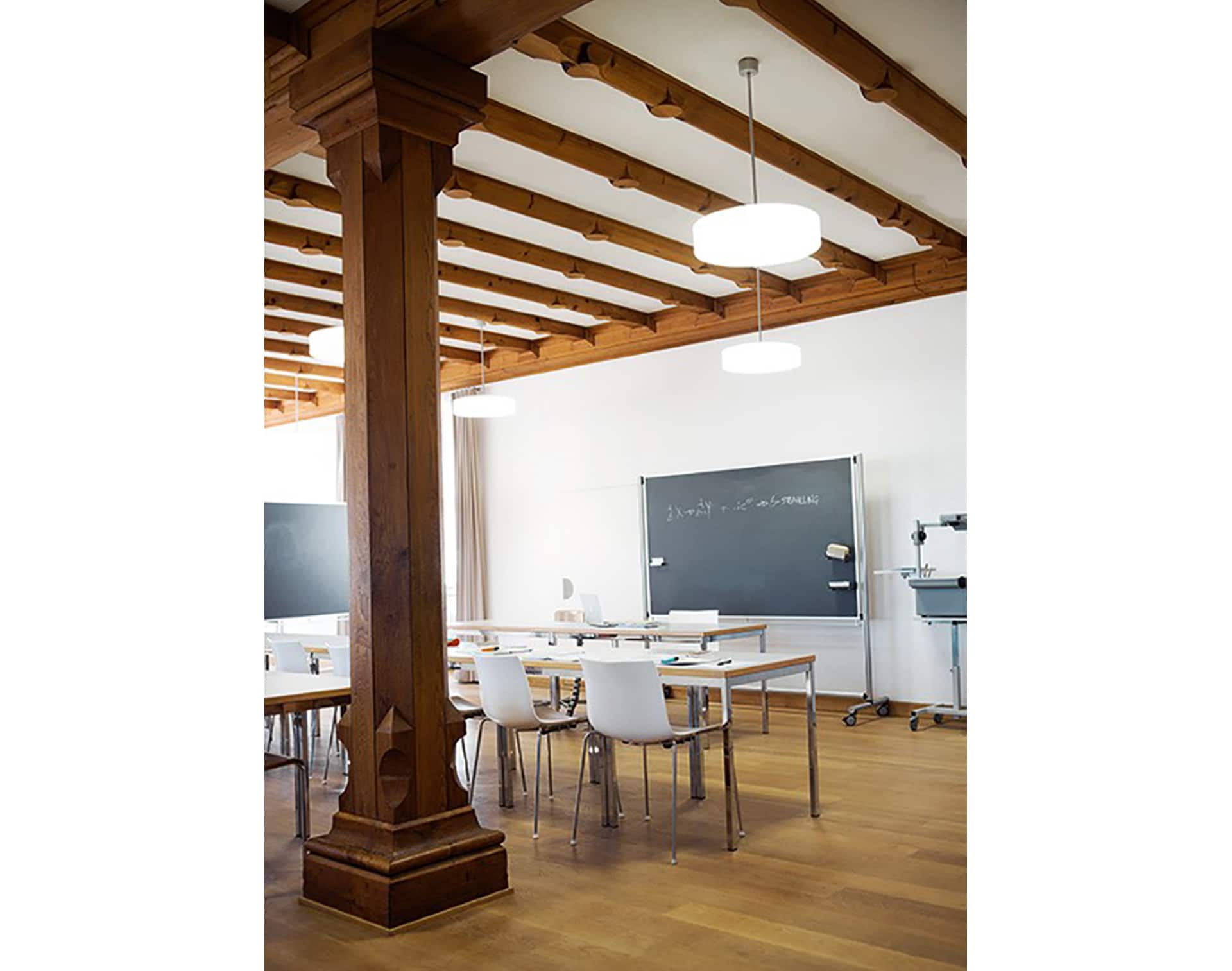Within educational environments, learning spaces are as important as the lessons themselves. Dynamic, functional environments, aid and instigate new discoveries through various styles of learning.
In 2014 our friends at Arper investigated this concept in their LIFE Brief No 4, Vol. 1. Masters in the art of interpretation, Arper’s job is to design furniture for specific activities. Furniture which allows people to do that activity faultlessly within a designated zone. Much of Arper’s furniture is designed for contract spaces; offices, universities, and hospitality environments. Places where the furniture must do its job, otherwise everything from performance to comfort and productivity suffers.
In designing these environments, hours of consideration has gone into figuring out how humans work, learn and relax. For example, from primary schools to universities, there is a science to creating spaces that support the endeavor of education.
When a student walks into a building or a classroom and feels (albeit unconsciously) that care has gone into creating an inviting and stimulating space, students are more open to being actively involved in learning.A classroom should be a place where a person is intellectually challenged but simultaneously feels emotional security. Support for academic, creative, sporting and social pursuits, must all be catered for. Whether studying for exams or completing an assignment, the environment should provide for the quest for knowledge if there to be any purpose to its existence.
Whatever subject an education embodies, the right equipment, furniture, and learning materials need to be condensed in a specialised space; from ABW, break-out spaces, quiet spaces, learning labs, one-on-one talks, group interactions and full class discussions. In dining areas, chairs and tables can be arranged for small gatherings of students to larger groups for communal meals. These spaces form a foundation for each student — not only as physical support structure, but also as a mental sanctuary that paves the way to a student’s future.
And it’s not only the student’s requirements that must be considered. How a learning environment functions is of equal importance to the teachers, staff and parents who make up an educational community. In order for teachers to do their job effectively, a classroom must operate as a space for instruction, reflection and discussion with students and colleagues. Space helps shape a scalable society of thinkers, where students learn a range of skills from collaboration to creativity, innovation, risk management, presentation skills and perseverance. These factors confer to create a setting ideally crafted for raising the people of tomorrow.
As Arper’s exclusive distributors in New Zealand, UFL are proud to embody Arper’s ethos down under. Think of it as future-proofing, or creating indemnity as we send our upcoming generations out to shape a brave new world.




